Lucy Liu And The Changing Face Of Sherlock Holmes
CBS have announced that Lucy Liu will play Watson in their new Sherlock Holmes series Elementary - alongside Johnny Lee Miller's Holmes. Here's the story of the changing face of Sherlock since 1887.
He’s outwitted the evil genius Moriarty. He’s overcome the plots of numerous career criminals and villains. He’s even survived an attempt by his own creator to kill him off. Yes, Sherlock Holmes has proven to be one of the most enduring cultural characters of the past few centuries. First appearing in 1887, the creation of Sir Arthur Conan Doyle appeared in 4 novels and 56 short stories and captured the imagination of a public who delighted in the detective’s powers of deduction. But the stories – which Doyle himself ironically described as a ‘lower stratum of literary achievement’ – were only the beginning. Over the next century Holmes would appear in numerous plays, TV shows and films that would make him one of the most adapted fictional characters of all time.
Indeed the popular image of Holmes - uttering “Elementary, my Dear Watson” whilst sucking on a briar pipe and wearing a Deerstalker cap – was not even created by Doyle. Given free reign by Doyle to adapt his stories for the stage (the one proviso being that Holmes was given no love interest), it was the actor William Gillette who (alongside the illustrations by Sidney Paget that appeared in some of the original Holmes stories) added many of the accessories which we now associate with the detective. Gillette would go on to play Holmes more than 1300 times in front of audiences in the UK and the US and his image plastered over posters, theatre programmes and magazines leaving indelible mark on history of Holmes.
Much like those who have a James Bond who is ‘theirs’ (in what would be seen as sacrilege by some, I am a Timothy Dalton man) there are those who have a favourite Holmes. For many Basil Rathbone – who first played Holmes in 1939’s Sir Arthur Conan Doyle’s The Hound of the Baskervilles – remains close to the heart. His Holmes has all the cleverness and deductive powers but there was also a commanding sense of the dashing and heroic. Teamed up with Nigel Bruce – who portrayed Dr Watson as something of an imbecile – the adaptations became film classics, endlessly repeated throughout the years. It also marked a move beyond straight adaptations of Doyle’s work as the later films were set in the 1940’s, most famously with Sherlock Holmes and the Voice of Terror which saw the sleuth battle the Nazis. There were some who abhorred the gall to take Holmes away from his Victorian setting: but they were others who regarded it with a sneaking admiration (including Messrs. Steven Moffat and Mark Gatiss, more of whom we will hear about later on). Certainly, Doyle’s work had always been open to re-interpretation: throwaway references to other adventures in the stories begged for expansion whilst Holmes’ character traits beyond his deductive powers (including – Irene Adler aside – his lack of interest in the opposite sex and sex in general, his formative years and his drug habit) were always ripe for exploration.
Robert Stephens portrays him as a man in a state of depression, weary at a world in which his talents can never reach their full potential
After a few decades of relatively ordinary TV and film adaptations which saw the likes of Peter Cushing and Christopher Lee tackle the role with varying degrees of success, more inventive ways to interpret Holmes started to spring up in the 70s. These included The Private Life of Sherlock Holmes, Billy Wilder’s acclaimed film that worked as both pastiche and love letter to the character, The Adventures of Sherlock Holmes Smarter Brother, which was an unashamed crude comedy, and The Seven Per-Cent Solution, which concentrated on Holmes’ dependency on cocaine. It was no longer enough to marvel in Holmes’ remarkable methods: we also wanted to know what made him tick. Hence, in The Seven Per-Cent Solution, Nicol Williamson plays Holmes as both nervous and brilliant whose intellect is only impeded by withdrawal symptoms and the fact that he discovers Moriarty slept with his mother whilst, in Wilder’s film, Robert Stephens portrays him as a man in a state of depression, weary at a world in which his talents can never reach their full potential. Whilst purists may have shuddered at the treatment of Holmes, audiences seemed to appreciate the new slants on his personality.
It’s also worth noting that, despite the inherent Englishness of the character, there were many other countries that attempted to bring him to the screen. Whilst Germany was responsible for numerous popular adaptations in the first half of the 20th Century alongside Denmark, Italy and even Venezuela, it was Russia who was perhaps the most successful with 11 episodes of Priklyucheniya Sherloka Khlomsa I Doktora Vatsona produced in the late 70s. Hugely popular in the Baltic States, they were surprisingly faithful to Doyle’s works with Vasily Ivanov proving to be an engaging Holmes. Whilst he may have been a creation rooted in Victorian England, Holmes’ heroics seemed to have a much more universal appeal.
It would take an actor who perhaps was the closest to Doyle’s original creation to replace Rathbone’s portrayal in the hearts of many. Starring in British television adaptations of Doyle’s stories, Jeremy Brett’s version of Holmes was both fierce and vulnerable. His long thin frame and often depressed demeanour (save the occasional flash of a smile) was matched by an intensity that seemed to make Holmes’ intellect radiate from the screen. With the adaptations being faithful to Doyle’s originals (albeit with one or two minor alterations), audiences once again fell in love with the source material and Brett is still one of the definitive portrayals of Holmes with many believing that his real life battles against crippling depression brought a reality to the character that gave his portrayal an extra edge. Even today, the hour-long episodes produced in the mid-80s stand up well against the ‘event’ TV of today that is so often the norm.
Whilst in no way faithful to Doyle, Downey’s Holmes is an engaging one. He’s no dour depressive and is instead an action hero as quick with his fists as he is with his brains
As Brett continued to set the standard on TV there were more attempts by the movies to look at the character in a new way, with films such as Without A Clue (that posited the idea that Holmes was in fact an actor hired to conceal the fact that it was Watson who was the genius) and Young Sherlock Holmes (a sometimes ingenious guilty pleasure that has some intriguing ideas about how Holmes and Watson met). But it is Robert Downey Jr. who is currently the modern era’s most famous filmic Holmes. Whilst in no way faithful to Doyle, Downey’s Holmes is an engaging one. He’s no dour depressive and is instead an action hero as quick with his fists as he is with his brains, and whilst the films are devoid of some of the brilliantly subtle nuances that makes Holmes so interesting, there is something exciting about seeing Holmes elevated to the likes of a James Bond hero.
But those who thought that Guy Ritchie’s films were taking appalling liberties probably had heart attacks when the BBCs ‘Sherlock’ was announced. The brainchild of the aforementioned Steven Moffat and Mark Gatiss, it updated Holmes to the modern era. And – despite the worries – it did so spectacularly. Showing how Holmes would still be relevant in an era of mobile phones and the internet, Benedict Cumberbatch is superb as the detective radiating arrogance and brilliance at the same time. Shot in a resolutely stylish way, the show has opened a whole new world of Sherlock Holmes fans who are seeing beyond the deerstalker and pipe.
Of course one feels slightly guilty at not giving enough credence to Dr Watson (whose character is as much responsible for the success of Holmes as Holmes is) and various supporting characters from Inspector Lestrade to Mrs Hudson. But they would be content to stand aside and let Holmes take the spotlight as one of the most enduring fictional characters in history and the world’s greatest detective.
For a complete run down of all those who have played Sherlock Holmes buy Sherlock Holmes On Screen by Alan Barnes published by Titan Books.
Click here for more stories about TV & Film
Click here to follow Sabotage Times on Twitter
Click here to follow Sabotage Times on Facebook
If you like it, Pass it on
 COMMENTS
COMMENTS
It's about time someone made a decent film about the Great Hiatus after Holmes went over the Reichenbach Falls in 1891. Something along the lines suggested in Sheil's The Siam Question.
Great piece.
Jeremy Brett is the King, absolutely peerless. Every time I watch it, I'm astonished at how perfect he is.


 RELATED
RELATED


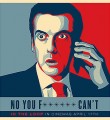
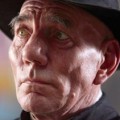

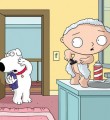

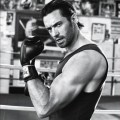
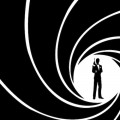

 SABOTAGE
SABOTAGE





